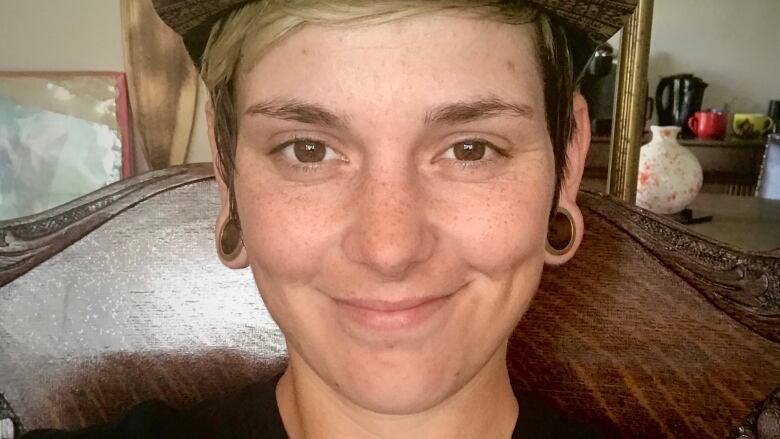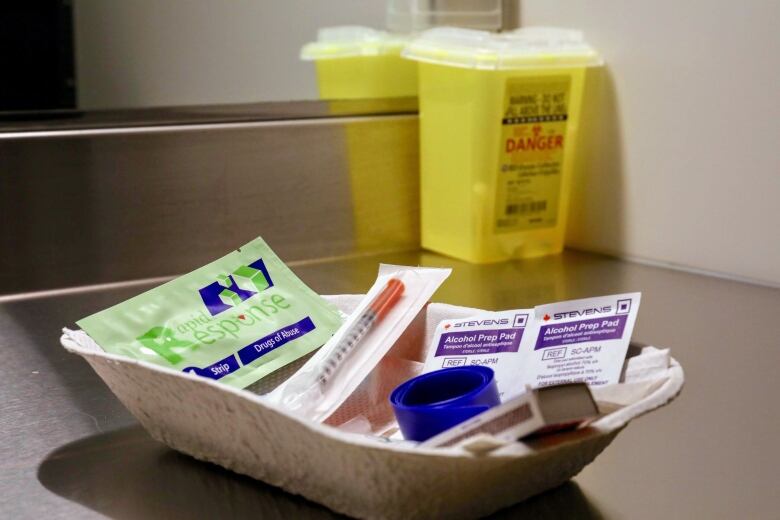'She might not have died': Mother calls for Vernon OD prevention site
A B.C. mother is calling for more OD prevention sites, after her daughter recently died in Vernon

Mehgan Parrotta, 28, had always dreamed of being a police officer, according to her mother, Sandra Welton, but about four years agoher struggle with drugs took over. She was living in Vernon, B.C., and found herself trying to escape a heroin addiction.
Parrottamoved in with her mother in Chase two years ago and managed to turn things around, switching from heroin to methadone before quitting completely. But in late May, she travelled back to Vernon to visit friends.
It's there thatshe was found unresponsive on the street with an unused naloxone kit. She spent some time in hospital on life support, before Welton made the gut-wrenching decision to let her pass away.
"It was really hard, because we should never watch our children die first," said Welton.
She was told her daughter had overdosed after taking cocaine mixed with fentanyl and some sort of cold medicine.
Welton believesher daughter might still be alive today if, like many communities across the province, Vernon hadan overdose prevention site (OPS), where someone would have immediately recognizedParrottawas having an overdose and intervened.

"We had talked endlessly about fentanyl being in drugs, right? And how it only takes one time, so I can say, 100 per cent, she would have used [an OPS]," said Welton.
Overdose crisis still intense
The death toll from the overdose epidemic in B.C. has levelled off and even declined somewhat in the last few months, but it's still shockingly high. In 2016, when a public health emergency was declared, there were 992 people killed by illicit drug overdoses. In 2018,1,514 people died.
The latest numbers from the B.C. Coroners Service don't go past March 31, 2019, but the rate of fatal overdoses though down from 2018 is still slightly higher than it was when the public health emergency was declared.
The response from officials has been significant, with the broad distribution of overdose-reversing naloxone kits andaccess to opioid replacement treatment.OPS and supervised consumption sites (SCS) have also played a major role.
"Before we declared the emergency we had a single site," said Dr. Bonnie Henry, B.C.'s provincial health officer, referring to Insite in Vancouver's Downtown Eastside. "We've expanded dramatically from that."

The B.C. Centre for Disease Control reported that in March alone,there were 73,196 visits to the sites across the province, with 528 overdose victims saved. To date, there has not been a recorded overdose death at the sites.
There are now 33 official OPS and SCSsacross the province's health regions:
- Vancouver Coastal has 10.
- Island has 9.
- Fraser has 8.
- Interior has5.
- Northern has1.
According to Henry, there are also dozens of unofficial facilities, mostly found in supportive housing, where residents have a place to use illicit drugs in a safe setting.
But not every community has welcomed the facilities, posing a challenge for health officials like Henry.
In Vernon, where 108 people have been killed by illicit drug overdoses in the last decade according to the BCCoroners Service, there's been resistance to the idea.
According to Henry, other communitiesincluding Maple Ridge, Nanaimo, and Duncan have also been difficult to convince of the benefits of the sites.
"These are important medical services that are supporting some of the more vulnerable people in our communities, and these people are our friends, our colleagues, our family members," said Henry."[OPSs and SCSs] are important measures right now in this crisis that we all need to to get behind and support."
For Welton, still pushing through her grief, anything that saves another mother from experiencing the loss she has is worth fighting for.
"The biggest message I have to every [drug] user of any kind is do not use alone," she said. "If my daughter didn't use alone and she was in a safe injection site she might not have died."
Do you have more to add to this story? Email rafferty.baker@cbc.ca
Follow Rafferty Baker on Twitter: @raffertybaker












_(720p).jpg)


 OFFICIAL HD MUSIC VIDEO.jpg)
.jpg)



























































































